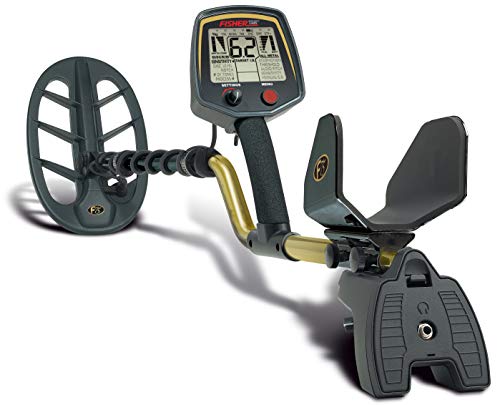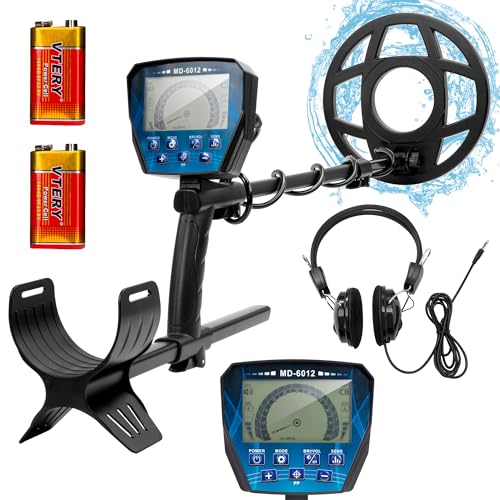
When it comes to metal detecting, there are two big names in the game: Fisher and Garrett. Both have their loyal fans, but which detector is the best?
In this blog post, we’re going to take a look at the Fisher F75 vs Garrett AT Pro metal detectors and see who comes out on top. We’ll be discussing what we think are the best and the worst bits of both metal detectors, so you can make an informed decision about which one is right for you. Whether it’s beach hunting, relic hunting, or coin shooting you’ll know the best metal detector for your needs.
In the world of metal detecting, there are two clear leaders – Garrett and Fisher. However, many people cannot decide which metal detector is better ( check out our recommendations for the best metal detectors for kids).
- Covered non-stick housing and searchcoil with connectors - water resistant to 3 meters.
- Preset modes - all sockets can be adjusted by user.
- Automatic or manual sync base.
- Coil end with reinforced end, larger search box and base cover.
- With country-adjustable helmet connection, with seal.
- Lightest weight / best ergonomics in the industry - powerful performance trigger-actuated target pinpointing with variable audio pitch - large lcd screen with 0-99 numeric target identification display
- Double-filter discrimination modes for searching in trashy areas - magnetic mineralization bar graph and readout - trigger-actuated fastgrab ground balance
- Non-volatile memory saves settings - backlight – for low light hunting conditions - low operating cost – typically 40+ hours with 4-aa alkaline batteries
- Double-D Waterproof Search Coil - Rain Cover for Control Housing & Battery Housing Available
- Recommended for: coin shooting, relic hunting, beach hunting, gold prospecting. Operating humidity range: 0-90% non-condensing
In this blog post, we will be discussing the pros and cons of each product. By the end of this article, you will have a better understanding of which of these metal detectors is right for you.
The Fisher F75 metal detector
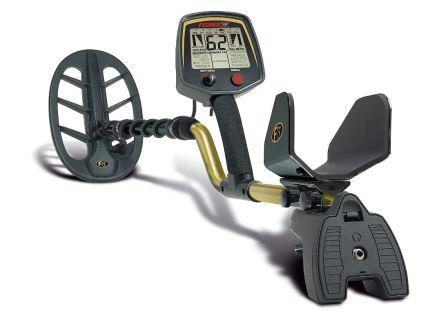
The Fisher F75 is a popular model of metal detector that is used by hobbyists and detectorists alike. And the Fisher F75 has many features that make it a good choice for detectorists.
It is lightweight and portable, so it can be taken to different locations. It also has an easy-to-use interface and good discrimination between different types of metals.
In addition, the F75 is very sensitive to small objects, making it more likely to find coins and other small items that other detectors might miss.
Overall, the Fisher F75 is a good choice for detectorists who want a reliable and easy-to-use metal detector.
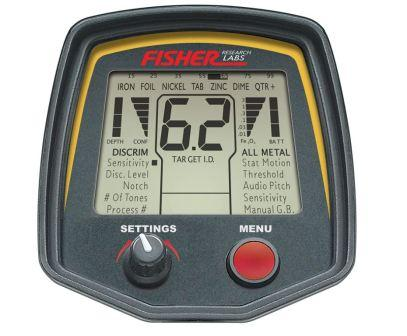
The Fisher F75 metal detector is a high-quality product that is super simple to assemble. The control panel boasts a simple-to-use interface, and with its Powerful Performance Trigger-Actuated Target Pinpointing with Variable Audio Pitch, this and many other things make it one of the most efficient detectors on the market.
When you look at the specifications of this machine you can clearly see why many people choose the Fisher F75 because it is user-friendly and offers a great deal of value for the price.
Garrett AT Pro metal detector
The Garrett AT Pro is a versatile and powerful tool that can be used for a variety of tasks, from finding lost coins to locating buried treasure. For detectorists, the benefits of owning a Garrett AT Pro are numerous.
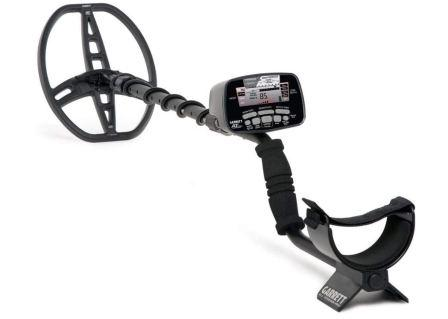
What are the Garrett AT Pros benefits?
First, the metal detectors advanced discrimination capabilities make it easy to find valuable metals while avoiding junk items. Second, the detector’s audio system allows detectorists to hear faint signals that might be missed by other models.
Finally, the Garrett AT Pro’s rugged construction can withstand harsh conditions, making it ideal for use in any environment. Whether you’re a seasoned detectorist or just beginning your treasure-hunting journey, the Garrett AT Pro is sure to help you find hidden treasures.
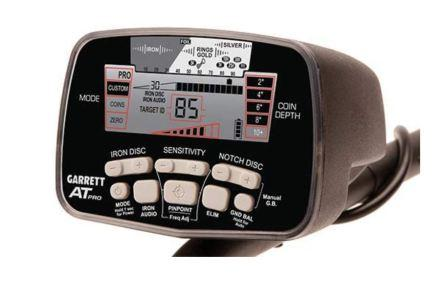
The Garrett AT Pro metal detector is one of the most popular detectors on the market. It’s fully waterproof and submersible has proportional audio response, and Tone Roll Audio features.
This detector is perfect for someone who wants all the bells and whistles without spending a fortune.
Fisher F75 vs Garrett AT Pro. How do they measure up?
The Garrett AT Pro is a metal detector that is popular among detectorists. It is lightweight and easy to use, and it has a waterproof design that makes it ideal for use in a variety of settings.
The AT Pro also features a large 8.5” x 11” DD PROformancesearch coil, which makes it well-suited for finding objects in a variety of soil conditions.
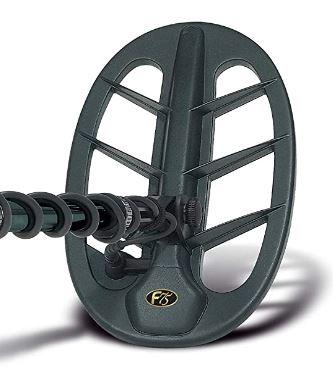
In terms of weight, the AT Pro weighs just 3.03 lbs, making it light enough to be carried for long periods of time. As for dimensions, the AT Pro is adjustable, so you can take this machine from 43″ all the way to 56″ to suit your needs. This makes it compact enough to be transported easily, yet still large enough to provide adequate coverage when searching for objects.
The Fisher F75 is a fantastic detector for both novice and experienced detectorists alike. It is lightweight, although weighing in slightly heavier than the AT Pro at 3.5lbs, yet still offers excellent ease of usage, in all types of terrain.
The Fisher F75 also has a large 11″ DD coil as standard which gives you great coverage and the excellent backlit display makes searching in low light conditions much easier.
If you are looking for a detector that performs well and does not break the bank, then the Fisher F75 is an excellent choice.
Which detector has the best coil?
The elliptical coils fitted on both of these machines is the best in their class, but there are some differences between them. Garrett’s has more insulation to keep it cool which helps performance while using less power than Fishers model, although the F75 open design allows quicker recovery time after detection. But all in all, there is not a lot to choose between the two.
What Type of Batteries do they use?
Both the Fisher F75 and the Garrett AT Pro metal detector use four AA alkaline batteries. Alkaline batteries are the most common type of batteries, and they are often used in small electronic devices like flashlights and remote controls.
However, detectorists who use their detector for long periods of time may prefer to use rechargeable batteries, as they will not need to be replaced as often. Rechargeable batteries can also be charged using a solar charger, which can be helpful if you are a detectorist who is frequently in remote areas.
Which detector has the steepest learning curve?
Many detectorists find that the learning curve for the fisher f75 metal detector is relatively short. This is due in part to the fact that the detector is very user-friendly and easy to understand.
The detector also comes with a comprehensive manual that provides clear instructions on how to use the device. However, some detectorists report that it took them several weeks or even months to become truly proficient with the f75. Others find that they are able to get good results from the detector after just a few days of practice.
Ultimately, the amount of time it takes to learn how to use the fisher f75 metal detector will vary depending on each individual’s level of experience and expertise.
But what is the learning curve like for the Garrett AT Pro? Is it difficult to master? The answer depends on your level of experience.
If you’re a beginner, you can expect to spend some time getting familiar with all of the features and settings. However, the detector is designed to be user-friendly, so it shouldn’t take long to get the hang of things.
Once you’ve mastered the basics, you’ll be able to start enjoying all that the AT Pro has to offer. Experienced detectorists will find that the AT Pro is just as easy to use as any other detector on the market, so they can jump right in and start finding treasures.
No matter your level of experience, the Garrett AT Pro detector is a great choice for anyone looking for a versatile and user-friendly option.
Conclusion
So, which is the best?
The Garrett AT Pro or the Fisher F75?
It really depends on what you’re looking for. If you want a machine that has all the bells and whistles to take metal detecting, then the Garrett is the way to go.
However, if you’re looking for a more simple machine, especially if it’s your first metal detector, and you want something that does the job well, then the Fisher F75 is a great option.
However, if you want to go metal detecting or treasure hunting with something that has more features, then there is only one detector to choose. The AT Pro.
Ultimately, the decision comes down to personal preference. Whichever one you choose, you’re sure to have hours of fun exploring the great outdoors!
FAQ’s
Are Fisher F75 metal detectors waterproof?
The answer is yes, the Fisher F75 is waterproof, well the search coil is. While it is not designed for use in salt water, it can withstand being submerged in fresh water for short periods of time. However, it is important to note that even though it has a waterproof coil, the control box is not, so detectorists should take care to keep it dry when metal detecting near water.
Is the Garrett AT Pro waterproof?
The AT Pro is fully submersible up to 10 feet, so detectorists can use it in a variety of environments, including rivers, lakes, and even the ocean. The AT Pro also features a large LCD screen that is easy to read in all lighting conditions. Overall, the Garrett AT Pro is an excellent option for detectorists who need a durable and waterproof metal detector.
How deep does a Fisher F75 detect?
The answer depends on a number of factors, including the size and composition of the target object, as well as the type of soil in which it is buried. Many people report detecting coins at between 8″ to 16. This is more than enough for most detectorists, who are usually looking for objects that are close to the surface. However, if you are looking for something that is buried deeper, it is important to note that the detector’s performance will decrease at greater depths.
How deep can a Garrett AT Pro detect?
This is a difficult question to answer as it depends on a number of factors, such as the type of metal detector, the size and shape of the object being detected, and the soil conditions. However, The depth indicator on this machine shows a maximum of 10+ inches however I’ve found objects as deep as 12- 14″ before when metal detecting with this machine. However, in most conditions, it can reach depths of up to 10 inches. So, if you’re looking for deep treasures, the Garrett at Pro is a great choice.
Can the Fisher F75 find gold?
The F75 metal detector is a highly reliable gold nugget detection device that’s been popular among prospectors and miners alike for many years. The reason it has such great popularity in these fields? It offers an outstanding balance between performance, reliability as well as durability.
Can the Garrett AT Pro find gold?
While all metal detectors can find gold, not all are designed specifically for that purpose. The Garrett at pro is a detector that can find gold, so it is well suited for that task. It has a higher frequency than most detectors, around 15kHz, although the Garrett AT Gold is specifically designed for the job running at the higher 18kHz. If it’s gold you are after then it may be wise to go for the AT Gold. Although the AT Pro has a lower frequency, it is able to penetrate the ground more and detects deeper treasure.


